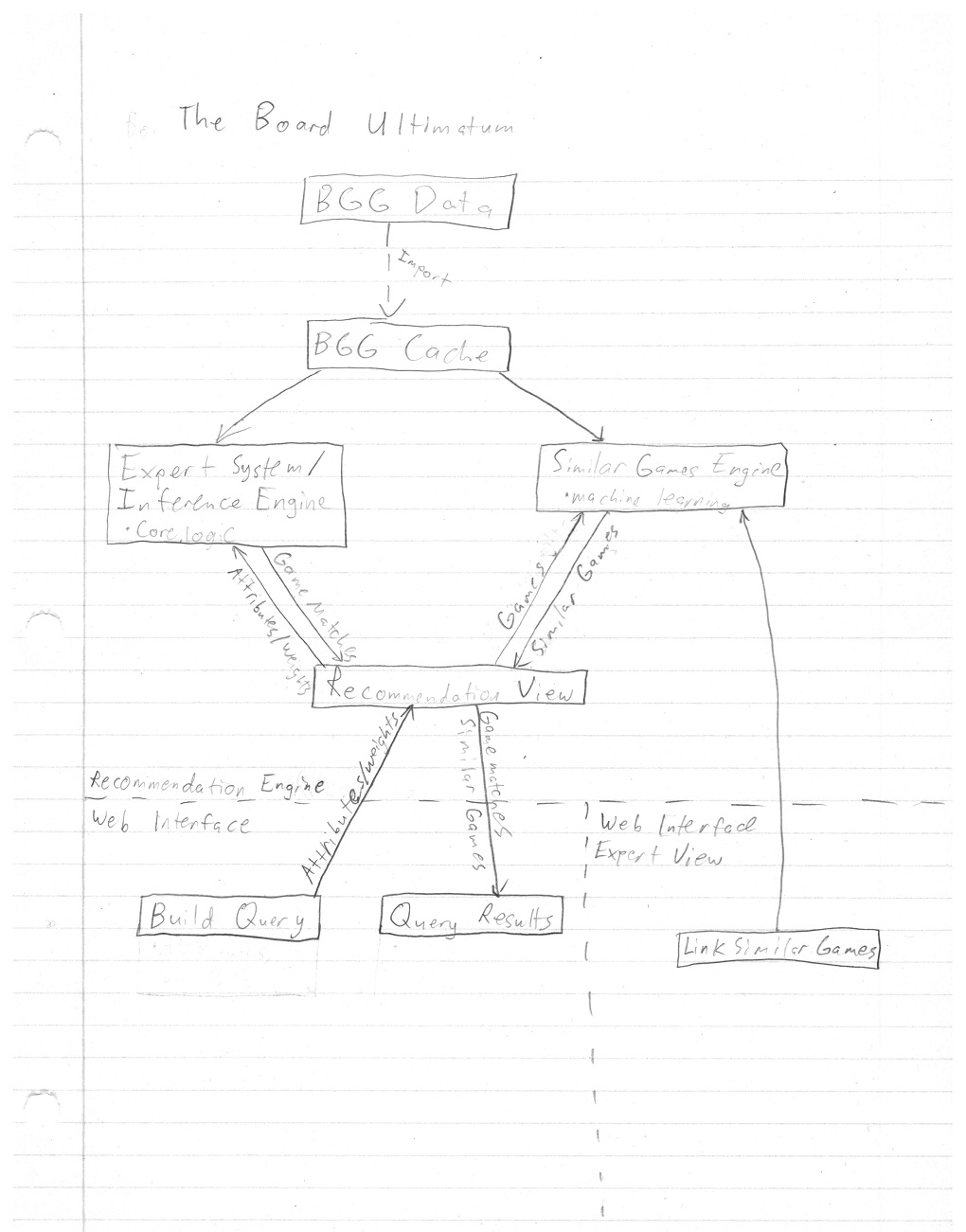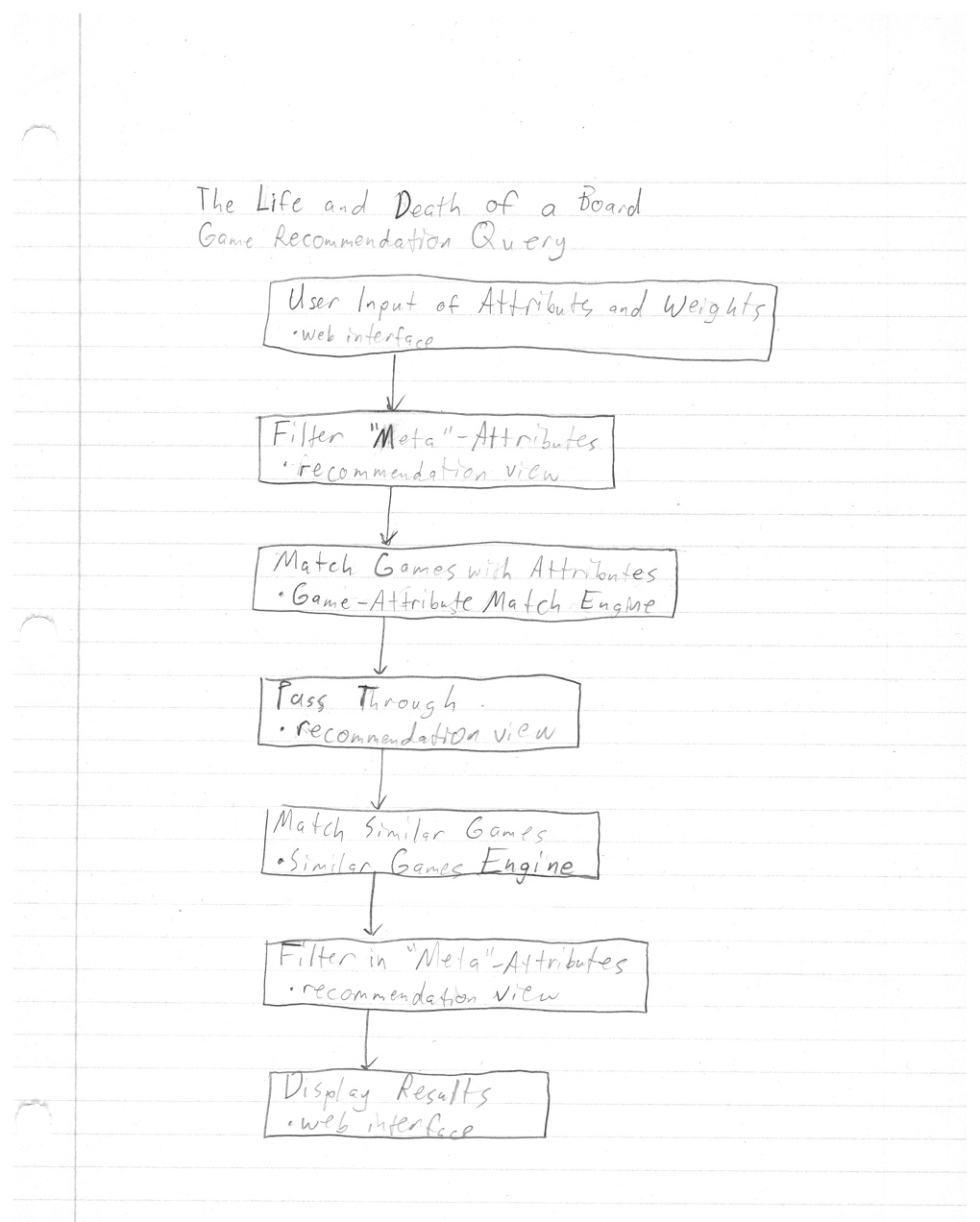Note: This post was heavily inspired from the system design that Ryan, Alex, and I talked about earlier.
Our team has always understood that we would need some contained system that gives game recommendations based on preferences (i.e. the recommendation system core), but this is only half the work. There’s more to do in storing the data, and providing webpage interfaces for sending queries to the core and displaying results. While this bare-bones system should be sufficient to meet our initial requirements, there’s still more to add to the system, as we discovered at our meeting. In particular, there’s a this system doesn’t provide a feature that an expert could provide to a user: variety. Many avid players are interested in trying something new, even if it is further away from their preferences. We want to provide an option to the user to request variety in the search.
Unfortunately, variety is a loosely defined preference in a board game query. The user can select that they want a strategy game or a 4 person game, and we know exactly what they mean. If the user selects that they want variety, then suddenly we have a huge problem. This isn’t some attribute of a game that we just match. It’s the desire to get games that don’t match their selected attributes, but still will be likely fun by their standards.
The simple solution would be to just not provide this feature. But where’s the fun and variety in that?
The other solution we talked through is to allow experts to map similar games. Rather than attempt to model variety ourselves, we can simply return games that are similar to the games the user will like, but that the user didn’t actually search for with his input. This would involve providing a new interface to experts on the website so that they can map games to each other.
I drew up some flowcharts on the proposed system. When the system is finalized, we’ll have some proper flowcharts:

The overall I/O of the system with the two proposed engines.

The flow of a recommendation query from inception to display.
Essentially, instead of returning games matched by attributes immediately, some of these results are then passed into the similar games engine and then the mixture of results are returned to the user. The filtering in the second chart exists to remove attributes that aren’t directly relevent to user preferences for recommendations; that is, they are closer to constraints than preferences (e.g. number of players, time to play).